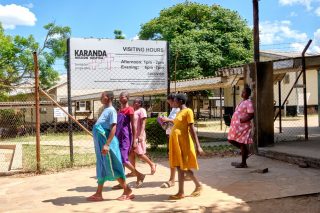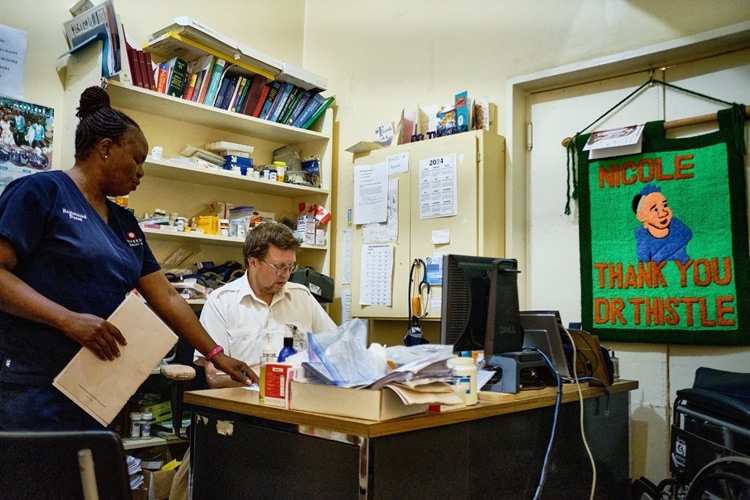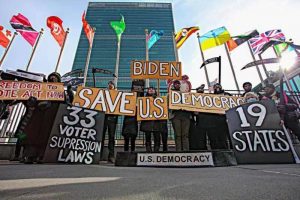Outside a hospital in rural Zimbabwe, many people stand patiently waiting under trees or in small tents for news of their loved ones.
Vendors offer sweets, fruit and soft drinks to those who line up at the gate at the clinic.
Zimbabwe’s state health system has almost completely collapsed after years of mismanagement, amid a shortage of funds, personnel, medicine and equipment.
When they need it, those who can afford it, including government ministers, instead fly overseas to receive treatment. Some knock on private but relatively expensive hospitals in Harare.
Many others instead travel to Mount Darwin, a small town about 200 km north of the capital, where the Karanda Mission Hospital is located.
“I did not have any hope of getting my aunt treated in Harare. We had to ask for water so she could drink it and bathe or even to flush the toilet,” said a man named Gunira.
After a three-hour drive, nurses lifted his aunt from his SUV onto a stretcher and took her into the building.
The hospital, financed by the Evangelical Church of Zimbabwe, is run by three North American doctors. The hospital was initially set up to treat residents in the rural area, but has built up a reputation as one of the best in the country.
The clinic, with 150 beds, treats up to 100,000 people a year and is almost always full, says medical director Paul Thistle, a doctor from Canada who married a woman from Zimbabwe.
The clinic has affordable consultation fees – about $15 compared to the average $50 charged by private hospitals in Harare. Patients come from all over Zimbabwe and even neighboring Zambia to receive treatment here.

“We will never turn a patient away,” Thistle told AFP. “Karanda stands out because we have the most modern medication and the best diagnostic technology and equipment, but also because of the intangibles.”
This means staff who care about their patients – something that is not in abundance elsewhere, some patients say.
Zimbabwean doctors and nurses have moved overseas in droves in recent years due to poor working conditions and runaway inflation.
To limit the outflow, authorities are making it difficult for them to obtain the necessary documents to prove their qualifications – leading to further frustrations for medical staff. Strikes are common.
“The industry has been plagued by severe underfunding for years,” said Itai Rusike, head of the Community Working Group on Health, a group that advocates for medical personnel. “Human resources are exhausted, but also demotivated due to poor income, poor working conditions and health institutions that are not properly equipped.”
The Ministry of Health did not respond to a request for comment.
No water, no medicine
Pres. Emmerson Mnangagwa opened a new “modern” clinic in Bulawayo before the elections in August last year.
However, critics say that the flashy ribbon-cutting exercises are not being followed up by systemic reform to save the health industry.
Many hospitals do not have the necessary equipment to handle radiography, cancer treatment or other procedures.
Infrastructure has collapsed and hospitals often lack electricity or water.
There is a lack of even basic medicines.
Regis Matinenga (50), who was diagnosed with tuberculosis, had to travel 343 km to receive treatment in Karanda. He has been ill for more than a year, but none of the hospitals where he called “could offer him better service”, he said.
Because the clinic is so remote, family members of the patients often have to camp outside – sometimes for days.
Local entrepreneurs have set up small rooms in their stores and rent them out for up to $15 a night.
The hospital did not record any maternal deaths last year – against a high national mortality rate of 363 per 100,000 births. The hospital wants to expand further.
It is the management’s “desire to build a hostel for family members so that they can also have proper housing”, adds Thistle.








